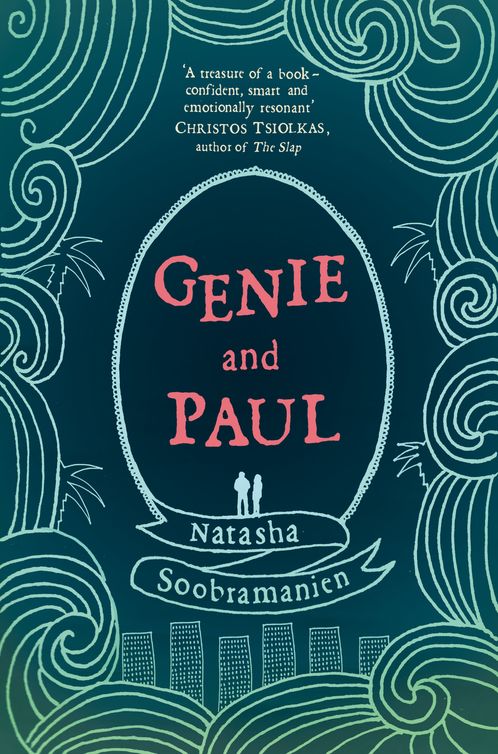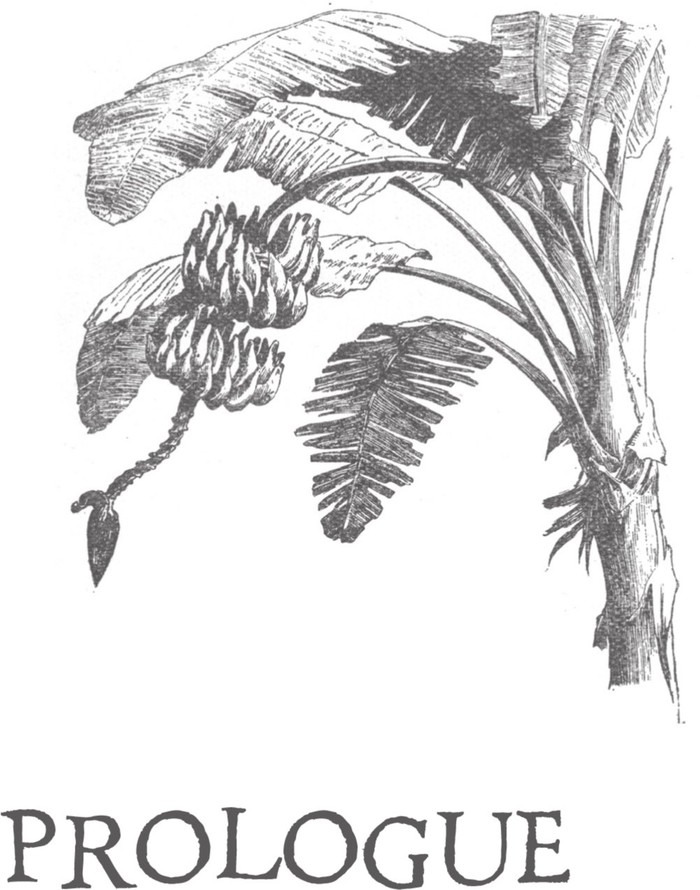Genie and Paul
Authors: Natasha Soobramanien


For my mother and father
‘Apparently, there has been only one prominent event in the history of Mauritius, and that one didn’t happen. I refer to the romantic sojourn of Paul and Virginia here.’
– Mark Twain,
Following the Equator
‘All the previous editions have been disfigured by interpolations, and mutilated by numerous omissions and alterations, which have had the effect of reducing it from the rank of a Philosophical Tale, to the level of a mere story for children.’
– Publisher’s note for
Paul and Virginia
, by Bernardin de Saint-Pierre, English translation,
c
.1851
‘I have seen Europe from Mauritius, now I will see Mauritius from Europe.’
– Bernardin de Saint-Pierre,
Journey to Mauritius
On the afternoon of Saturday 3rd May 2003, twelve-
year-old
Jeannot Gaspard set out from home on his bike to visit a new friend. He did not tell his mother where he was going. Jeannot’s friend lived in a shack at the end of a spit of land on the west coast of Rodrigues – the wilder side of the island – a few kilometres away from the village of La Ferme, where Jeannot lived. The journey took longer than it might have done: the destruction caused by Cyclone Kalunde which had brushed past the island two months previously was still being cleared, parts of the road impassable due to reconstruction work, and, once Jeannot had turned off onto a track down to the beach, much of it was blocked by fallen trees. When he arrived at what he guessed was his friend’s shack, his friend was not there.
Jeannot’s visit was prompted by a conversation he’d overheard between his mother and uncle. Jeannot had come to warn his friend, and to ask him some questions. He waited, but his friend did not appear. The following day, Jeannot returned to the shack and again waited, without luck. Having noted on his first visit the exact state of disarray in which a heap of blankets had been left, Jeannot concluded that his friend had not slept there for two nights. When, on Monday (Jeannot having skipped school), there was still no sign of him, Jeannot finally allowed himself to investigate the contents of the small cardboard suitcase left in a corner of the shack, seeking some possible clue to his friend’s fate or whereabouts. The unlocked suitcase, on which was painted
in pink pearly nail polish a girlishly curly ‘G.L.’, contained, along with a bundle of clothing, the following items of interest:
– a washbag containing various men’s toilet articles, including a razor, a jumbo tub of chewable vitamin C tablets which felt half-full when shaken, plus, rather excitingly, some condoms;
– a passport bearing a photo of his friend with a shaved head, looking some five years younger, giving his date of birth as 9th March 1971 and his place of birth as Mauritius;
– a wallet containing a 500-rupee note, a map hand-drawn on the back of a blank betting slip on which was marked a cross and the name ‘Maja’, and a strip of photos showing two teenage girls pulling stupid faces – the younger one dark-skinned with curly blue-black hair, the older pale, with heavy-looking dark red hair;
– an overwashed T-shirt bearing a faded, screen-printed tropical island in blue silhouette, superimposed over an orange sunset – much like the ‘Rodrigues’ T-shirts for sale in the tourist shops in Port Mathurin, except on this one was written ‘The
something
Band’;
– an old-looking edition of
Paul et Virginie
by Bernardin de Saint-Pierre, in poor condition, with pages missing.
Four days later, the owner of these items was found washed up on the shore by Pointe du Diable, several kilometres down the coast from where he had spent the last two weeks of his life. When his suitcase was discovered in the abandoned shack soon afterwards, it contained all the above-mentioned items – except for the book, which Jeannot Gaspard still has in his possession.
On Saturday 8th March 2003, Intense Tropical Cyclone Kalunde peaked to a Category Five in the middle of the Indian Ocean, southeast of the island of Diego Garcia, reaching sustained winds of a hundred and forty miles per hour. At that same time, almost six thousand miles away in the middle of London, twenty-six-year-old part-time postgraduate student in housing studies Genie Lallan was being rushed into hospital.
While Genie lay unconscious in intensive care, Kalunde travelled eastwards, sideswiping Rodrigues – little sister island of Mauritius, which narrowly escaped – wreaking destruction but claiming no lives, before veering southwards four days later towards the colder latitudes of the southern Indian Ocean, and oblivion.
At which point Genie Lallan, still in London and still in hospital, opened her eyes.
This was not the first time Genie had woken up without knowing where she was. Or even the first time she’d woken up in hospital, if being born was a waking-up of sorts. But it was the first time she’d died and come back to life again.
She’d only died technically. You could say the same about her resurrection: Mam took photos of her hooked up to the wires and drips, and some of the fat pipe forcing breath down her throat, a mechanical umbilical cord. Mam took the photos to show Paul, Genie’s big brother, who had been with her the night she’d almost died.
Where is he? Genie mumbled, not yet properly awake.
Mam said nothing, only smoothed the hair away from Genie’s forehead.
She was discharged and taken back to Mam’s. Her room had not changed since she’d left at eighteen. Walls the same colour. A flaky pink like dried calamine lotion – no, like the pink of something else which she could not quite recall, she thought, resurfacing between naps – with picked-off scabs where there had once been posters. Hazy from medication, Genie turned her attention to a picture on the wall by her bed. A plate taken from an old book.
Paul et Virginie
. A book with engravings she’d liked so much as a kid, she’d surreptitiously bent back the spine to precipitate its gradual falling apart so she could release that picture. ‘
Le Passage
du torrent
’. Against a background of black mountains, a muscular youth stripped to the waist, trousers rolled up to his knees, was standing on a rock in the middle of a swollen river, poised to continue his treacherous crossing. A girl, about the same age, on his back, clinging to him, arms around his neck, had her face half buried in his hair. On the riverbank were banana trees whose broad serrated leaves flapped in the wind – the same wind which was whipping the river into a frenzy of white froth; the same wind which had unfurled the girl’s hair from the scarf she had used to tie it back. The girl looked afraid but the boy, smiling up at her, looked happy to be carrying this load, which seemed to give him the strength to carry on.
Genie studied its cross-hatchings minutely for the rest of the afternoon, in between sleep, until Mam entered with a tray. When she drew the curtains, the sunlight was sharp and watery.
There’s been a cyclone, Mam said. She had rung the home where Grandmère lived for her regular update and they’d
told her. Mauritius was fine, they said, but Rodrigues was devastated. Absolutely devastated.
Genie squeezed lemon into her bowl of chicken noodle soup. Its velvety steam swabbed her nostrils.
Devastated
, she thought.
Shellshocked. Crying. In bits
. She asked again about Paul. Where was he?
Mam shrugged. Are you going to eat that soup or just blow on it?
On her bed were the same sheets she’d had as a child.
Deep-sea
divers in old-style diving bells waded heavily through a faded violet sea, parting weeds to find chests spilling treasure. When Genie had first started her periods, she’d bled on them and the stains had looked like rusted coins. She hadn’t seen these sheets in a while, she realised, as she manoeuvred herself out of bed. It was the same bed she’d always had. She had little strength to negotiate its sagging and felt tempted to let herself be swallowed up in its peaks and troughs. Being back at home was a bit like that. But she was here only temporarily. She couldn’t imagine how it must feel for Paul, who had no foreseeable way of finding anywhere else to live. After his last eviction he had told her that he was done with squatting, that he no longer had the energy to make himself anew. A quote from something, Genie supposed, palm against the wall as she struggled to her feet. Weak as she was, she had to go to his room; she had to see for herself.
Genie knew as soon as she pushed open his door, as soon as she saw how he’d left his room. How he had
left
: drawers pulled from their sockets, gutted; shelves cleared in one swipe – all of it gone, even the stupid photos of her and Eloise he’d stuck into a corner of the wardrobe mirror. Just the basics. ‘Prison possessions’, he called them. He was not lying low at all. He’d gone.
Genie opened the wardrobe; sunlight slithered the length of the mirror and fingered the wire hangers inside. They’d been picked clean.
Mam appeared in the doorway.
I couldn’t tell you while you were in hospital.
No, said Genie, I guess you couldn’t. Where is he?
But Mam said nothing, only walked to the wardrobe door and clicked it shut. Her reflection looked into Genie’s and Genie understood.
He never came to the hospital, did he?
No. His things were gone when I came home from my shift in the morning.
He’d taken Mam’s suitcase. The one they’d come to London with. But Mam told Genie not to worry, he would surely be back soon. If only because he’d run out of money.

